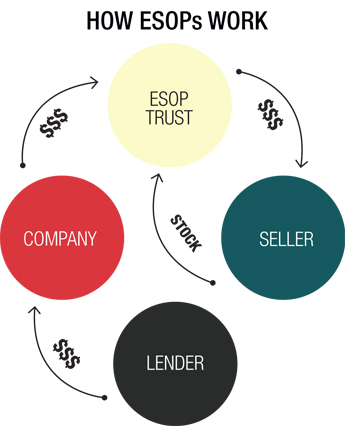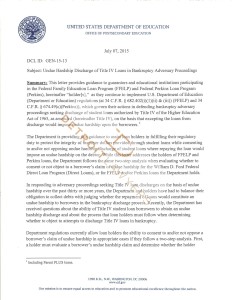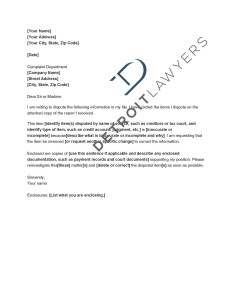Which Should Come First? Bankruptcy or Divorce?
Most of our clients do not want to file for bankruptcy. However, a life changing event usually makes bankruptcy the best option to eliminate their debt and start rebuilding their credit. One of the most common life changing events is divorce.
Prior to filing for divorce or bankruptcy, it’s important to examine the timing of each and the impact it may have on filing bankruptcy. Below are a couple examples of how the timing of a divorce can impact a bankruptcy filing.
Filing Bankruptcy Prior to Divorce
There are numerous reasons to file bankruptcy prior to getting divorced. Filing bankruptcy prior to the divorce may alleviate some friction. Since the majority of debts will be wiped out there will be no need to decide which spouse is responsible for which debts.
Another advantage to filing bankruptcy prior to a divorce is related to the cost. There are three major costs associated with filing bankruptcy – attorney fees, court filing fees, and credit counseling courses. Since you’re married you can file a joint bankruptcy. By filing jointly you’ll only have to pay one attorney fee, one court filing fee and one credit counseling course fee. This could end up saving you more than a thousand dollars!
By filing bankruptcy before you get divorced you’ll also be able to use the bankruptcy exemptions to your advantage. In Michigan, when you file for bankruptcy you can choose between federal exemptions and Michigan exemptions. There is a special type of Michigan exemption that can be used for property that is owned jointly between a husband and wife.
Filing Bankruptcy During a Divorce
If you need to file bankruptcy while in the middle of a divorce it may cause a slowdown in the divorce case. This is primarily the case when property is being divided between the couple. Once your bankruptcy is filed, all of your assets become property of the bankruptcy estate. As property of the bankruptcy estate, the property cannot be transferred to your spouse while the bankruptcy is pending. This may prevent the divorce from becoming finalized.
If you need to file bankruptcy while in the middle of a divorce it may cause a slowdown in the divorce case. This is primarily the case when property is being divided between the couple. Once your bankruptcy is filed, all of your assets become property of the bankruptcy estate. As property of the bankruptcy estate, the property cannot be transferred to your spouse while the bankruptcy is pending. This may prevent the divorce from becoming finalized.
Generally, filling a bankruptcy in the middle of a divorce makes things more complicated. However, it might be the only option as some divorces take years to get resolved.
Filing Bankruptcy After a Divorce
There are also reasons to file for bankruptcy after a divorce. If you cannot qualify for a Chapter 7 bankruptcy as a married couple due to your household income being too high, you may be able to qualify after the divorce is complete. This is due to the means test, which takes into account your household size and household income. Splitting into two separate households may allow you to qualify since the income limit for a household of two is not twice that of a single person household.
The exemptions mentioned earlier are another reason to file bankruptcy after a divorce. If the divorce separates the property once owned solely by one of the spouses, and previously unexempt, you may now be able to exempt that property.
There are a number of other factors that need to be taken into consideration when determining the proper time to file for bankruptcy in light of a divorce. Contact an experienced bankruptcy attorney to help determine the time most advantageous to your specific circumstances.





